March 18 stands as one of history’s most eventful days, witnessing the rise and fall of empires, groundbreaking discoveries, and moments that shaped our modern world across centuries of human achievement.

Politics and Government Events on March 18
1913 – King George I of Greece Assassinated in Thessaloniki
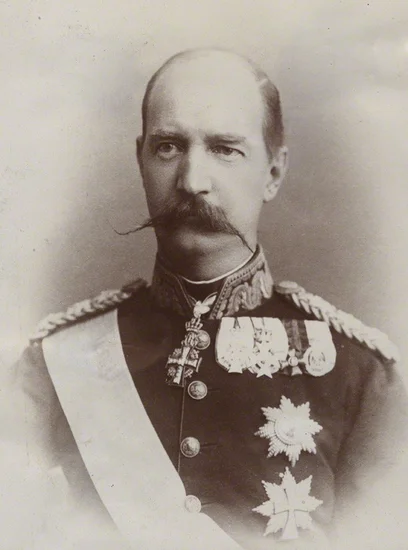
King George I of Greece met his violent end in the recently liberated city of Thessaloniki. The assassination shocked the Greek nation and destabilized the monarchy during a crucial period.
The king’s death occurred amid rising tensions in the Balkans following territorial gains from the Ottoman Empire. His murder marked a turning point in Greek politics and regional power dynamics.
1921 – Second Peace of Riga Signed Between Poland and Soviet Union

Polish and Soviet negotiators concluded the second Peace of Riga, establishing new borders between their nations. The treaty formally ended hostilities that had ravaged Eastern Europe for years.
The agreement granted Poland significant territorial concessions in exchange for recognizing Soviet sovereignty over disputed regions. This diplomatic settlement reshaped the political map of Eastern Europe for decades.
1925 – Lon Nol Ousts Prince Norodom Sihanouk of Cambodia
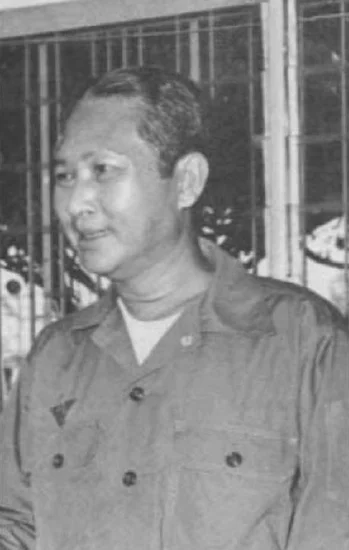
General Lon Nol executed a successful coup against Prince Norodom Sihanouk’s government in Cambodia. The military takeover dramatically altered Cambodia’s political landscape and international alignments.
Sihanouk’s removal ended decades of neutralist policies and pushed Cambodia deeper into the Vietnam War conflict. The coup’s consequences would haunt Cambodia for generations to come.
1959 – Hawaii Admission Act Signed Into Law
President Eisenhower signed the Hawaii Admission Act, paving the way for statehood. The legislation fulfilled decades of Hawaiian aspirations for full American citizenship and representation.
Congressional approval marked the culmination of extensive political negotiations and territorial governance improvements. Hawaii would officially become the 50th state later that year, transforming the Pacific territory forever.
1962 – Évian Accords End Algerian War of Independence

French and Algerian negotiators signed the Évian Accords, officially ending eight years of brutal warfare. The agreement granted Algeria independence while protecting French settlers and economic interests.
The accords represented a diplomatic triumph after years of failed negotiations and escalating violence. Algeria’s liberation marked the beginning of African decolonization’s final phase across the continent.
1990 – East Germans Vote in First Democratic Elections
Citizens of the German Democratic Republic participated in their first free elections since World War II. The historic vote marked communism’s final collapse in East Germany and accelerated reunification efforts.
Overwhelming support for pro-unification parties demonstrated popular rejection of socialist policies and Soviet influence. The election results provided the democratic mandate necessary for German reunification negotiations.
Military and Naval History on March 18
1915 – Battle of Gallipoli Naval Attack Fails Catastrophically
British and French naval forces launched a disastrous assault on the Dardanelles strait during World War I. Three battleships sank during the failed operation, marking a humiliating defeat for Allied naval power.
The naval disaster forced military strategists to reconsider their approach to opening the Turkish straits. This failure would lead to the infamous Gallipoli land campaign and thousands of additional casualties.
1921 – Kronstadt Rebellion Suppressed by Red Army
Bolshevik forces brutally crushed the Kronstadt naval base rebellion, ending sailor demands for political reforms. The Red Army’s assault demonstrated the Communist Party’s determination to eliminate all opposition.
The rebellion’s suppression marked a turning point in Soviet consolidation of power and the abandonment of democratic socialism. Many revolutionary heroes who had supported the 1917 Revolution perished in the government’s violent response.
1937 – Spanish Republicans Defeat Italians at Guadalajara
Spanish Republican forces achieved a decisive victory over Italian troops at the Battle of Guadalajara. The triumph demonstrated Republican resilience and dealt a significant blow to fascist intervention efforts.
Italian military prestige suffered considerably from their defeat by supposedly inferior Republican forces. The battle’s outcome encouraged Republican supporters while exposing the limits of foreign fascist assistance.
1940 – Hitler and Mussolini Meet at Brenner Pass
Adolf Hitler and Benito Mussolini held a crucial summit at the Brenner Pass in the Alps. The fascist leaders agreed to form a military alliance against France and the United Kingdom.
Their meeting solidified the Axis partnership that would reshape European warfare strategies and territorial ambitions. The alliance would prove instrumental in coordinating future military campaigns across multiple fronts.
1969 – United States Begins Secret Cambodia Bombing

American forces commenced covert bombing operations along the Sihanouk Trail in Cambodia. The secret campaign targeted communist supply lines supporting North Vietnamese operations in South Vietnam.
The bombing campaign remained hidden from Congress and the American public for months. This military escalation significantly expanded the Vietnam War’s geographical scope and political complexity.
Science and Discovery Milestones on March 18
1965 – Alexei Leonov Becomes First Person to Walk in Space
Soviet cosmonaut Alexei Leonov achieved humanity’s first spacewalk, spending twelve minutes outside his Voskhod 2 spacecraft. His historic venture demonstrated human capability to survive and work in the vacuum of space.
Leonov’s spacewalk marked a crucial milestone in space exploration and provided valuable data for future missions. The achievement gave the Soviet Union another significant victory in the ongoing space race competition.
1944 – Mount Vesuvius Erupts During World War II

Mount Vesuvius exploded in a dramatic eruption that killed 26 people and destroyed Allied bomber aircraft. The volcanic explosion forced thousands of residents to flee their homes amid wartime chaos.
The eruption’s timing complicated Allied military operations in Italy and demonstrated nature’s indifference to human conflicts. Volcanic ash damaged dozens of American bombers stationed at nearby airfields.
1953 – Massive Earthquake Strikes Western Turkey
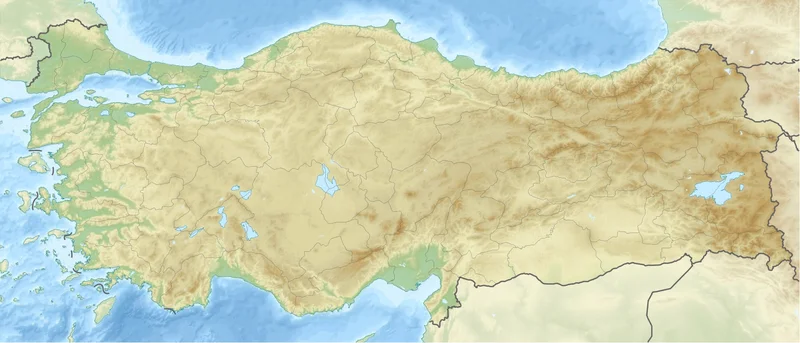
A devastating earthquake struck western Turkey, claiming at least 1,070 lives and causing widespread destruction. The seismic event highlighted the region’s vulnerability to natural disasters and geological instability.
Rescue efforts faced significant challenges due to remote locations and limited infrastructure in affected areas. The earthquake’s impact underscored the need for improved building standards and emergency response capabilities.
Cultural and Arts Events on March 18
1990 – Isabella Stewart Gardner Museum Art Theft
Thieves executed the largest art theft in United States history at Boston’s Isabella Stewart Gardner Museum. The criminals stole twelve paintings collectively worth approximately $500 million in an audacious heist.
The stolen masterpieces included works by Vermeer, Rembrandt, and Degas that remain missing decades later. The unsolved case continues to fascinate art historians and law enforcement agencies worldwide.
1974 – Nude Sculpture Destroyed in Istanbul

Vandals destroyed Güzel İstanbul, a controversial nude sculpture by Gürdal Duyar, during a nighttime attack. The artwork’s destruction reflected ongoing cultural tensions between traditional and modern artistic expression.
The sculpture’s removal sparked heated debates about artistic freedom and cultural values in Turkish society. The incident highlighted the complex relationship between contemporary art and conservative social attitudes.
1968 – U.S. Congress Repeals Gold Reserve Requirement
Congress eliminated the gold reserve requirement that had backed American currency since the nation’s founding. The legislation marked a fundamental shift in monetary policy and economic philosophy.
The gold standard’s abandonment allowed greater flexibility in monetary policy and government spending decisions. This change would prove crucial for managing future economic crises and inflation challenges.
Religious and Social Events on March 18
1907 – Mohandas Gandhi Sentenced for Civil Disobedience
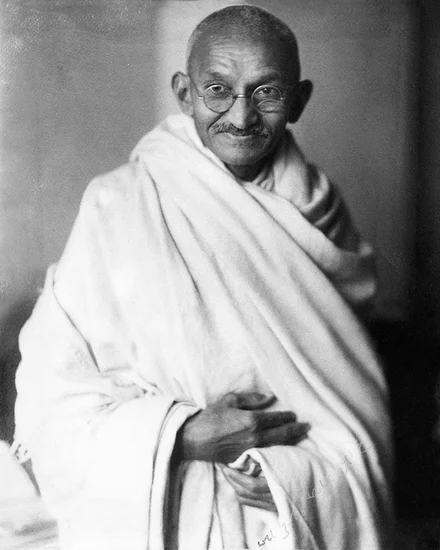
British colonial authorities sentenced Mohandas Gandhi to six years imprisonment for leading civil disobedience campaigns in India. The harsh sentence demonstrated imperial determination to suppress growing independence movements.
Gandhi’s imprisonment transformed him into a martyred figure and galvanized Indian nationalist sentiment across the subcontinent. He would serve only two years before release, emerging as an even more powerful political force.
1942 – War Relocation Authority Established in United States
The American government created the War Relocation Authority to oversee Japanese American internment during World War II. This federal agency would forcibly relocate over 120,000 people to concentration camps.
The authority’s establishment represented one of the most shameful violations of civil rights in American history. Decades later, the government would formally apologize and provide reparations for this wartime injustice.
1994 – Washington Agreement Ends Bosnian-Croatian War
Bosnia’s Bosniaks and Croats signed the Washington Agreement, ending their destructive conflict within the broader Bosnian War. The diplomatic breakthrough established the Federation of Bosnia and Herzegovina as a unified entity.
The agreement’s success provided hope for broader peace negotiations and demonstrated that ethnic reconciliation remained possible. American diplomatic pressure proved crucial in bringing the warring parties to the negotiating table.
Business and Economic Events on March 18
1938 – Mexico Creates Pemex Through Oil Nationalization
Mexican President Lázaro Cárdenas nationalized all foreign-owned oil reserves and facilities, creating the state petroleum company Pemex. The bold move asserted national sovereignty over Mexico’s natural resources.
Foreign oil companies condemned the expropriation as illegal confiscation of their investments and property. The nationalization established Mexico as a leader in resource nationalism and inspired similar actions across Latin America.
1947 – William C. Durant Dies
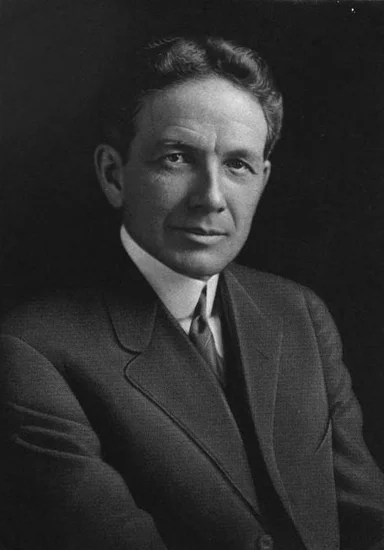
William C. Durant, co-founder of General Motors and Chevrolet, passed away after revolutionizing the American automotive industry. His visionary leadership transformed car manufacturing from craft production to mass industrial enterprise.
Durant’s business innovations established the foundation for America’s automotive dominance in global markets. His entrepreneurial legacy influenced generations of industrial leaders and manufacturing pioneers.
2004 – Harrison McCain Dies
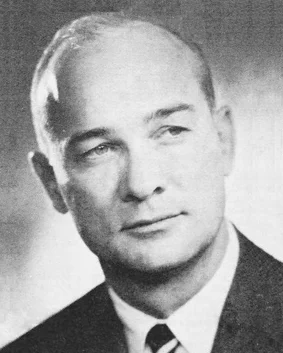
Harrison McCain, co-founder of McCain Foods, died after building one of the world’s largest frozen food empires. His company became synonymous with frozen potato products and international food distribution.
McCain’s business success demonstrated how Canadian entrepreneurs could compete effectively in global markets. His company’s expansion strategy became a model for international food industry development.
Transportation and Infrastructure on March 18
1967 – Supertanker Torrey Canyon Runs Aground
The supertanker Torrey Canyon ran aground off the Cornish coast, creating one of the world’s first major oil spill disasters. The accident spilled thousands of tons of crude oil into pristine coastal waters.
The environmental catastrophe prompted new international regulations for maritime oil transport and safety protocols. The disaster marked a turning point in environmental awareness and corporate responsibility for ecological damage.
1928 – Rocket Explosion Kills 48 at Plesetsk
A Vostok-2M rocket exploded during fueling operations at the Plesetsk Cosmodrome, killing 48 personnel in the disaster. The accident highlighted the extreme dangers associated with early space program development.
The tragedy remained classified for decades due to Soviet secrecy surrounding their space program. The incident demonstrated the hidden human costs of the space race competition between superpowers.
1997 – Russian Antonov Plane Crashes En Route to Turkey
A Russian Antonov An-24 charter aircraft broke apart in flight, killing all 50 passengers and crew members. The structural failure occurred when the tail section separated from the fuselage during normal flight operations.
The crash investigation revealed serious maintenance deficiencies and safety violations in post-Soviet aviation operations. The accident prompted stricter oversight of Russian charter flight operations and aircraft maintenance standards.
Sports and Recreation on March 18
1984 – Charley Lau Dies

Charley Lau, the revolutionary baseball batting coach, died after transforming hitting instruction across professional baseball. His innovative techniques helped countless players improve their offensive performance and extend their careers.
Lau’s coaching philosophy emphasized scientific analysis of swing mechanics and mental preparation for batting success. His methods influenced generations of hitting instructors and fundamentally changed baseball instruction approaches.
2016 – Tray Walker Dies

Tray Walker, promising Baltimore Ravens cornerback, died from injuries sustained in a motorcycle accident. The young athlete’s death shocked the NFL community and highlighted the risks faced by professional athletes.
Walker’s tragic passing prompted renewed discussions about player safety and off-field activities among professional sports organizations. His death represented the loss of tremendous athletic potential and personal promise.
2017 – Chuck Berry Dies

Chuck Berry, the legendary rock and roll pioneer, died after decades of influencing popular music worldwide. His innovative guitar playing and songwriting established the foundation for modern rock music.
Berry’s musical contributions earned him recognition as one of rock and roll’s founding fathers and primary architects. His influence extended far beyond music, shaping American culture and international entertainment industries.
Notable Births on March 18
1932 – John Updike Born
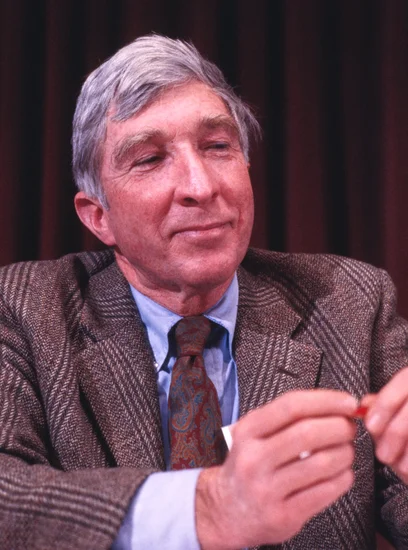
American novelist John Updike was born in Reading, Pennsylvania, beginning a literary career that would span decades. His childhood experiences in small-town Pennsylvania deeply influenced his future writing themes and settings.
Updike would become one of America’s most celebrated authors, winning multiple Pulitzer Prizes for his novels. His detailed observations of middle-class American life earned him critical acclaim and popular success.
1936 – F. W. de Klerk Born
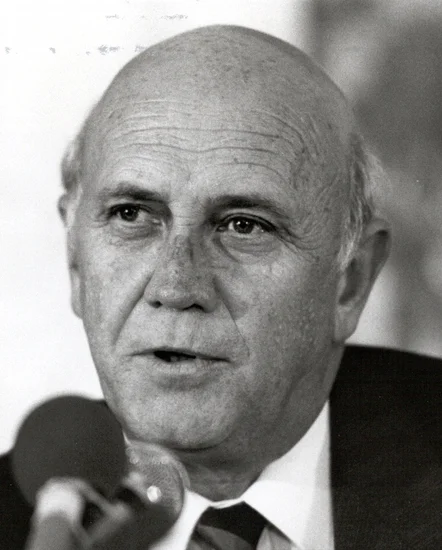
F. W. de Klerk was born in Johannesburg, South Africa, destined to become the last apartheid president. His early life in the apartheid system shaped his understanding of racial politics and social tensions.
De Klerk would later lead South Africa’s transition to democracy and share the Nobel Peace Prize with Nelson Mandela. His political transformation from apartheid defender to democratic reformer marked one of history’s most dramatic personal evolutions.
1941 – Wilson Pickett Born
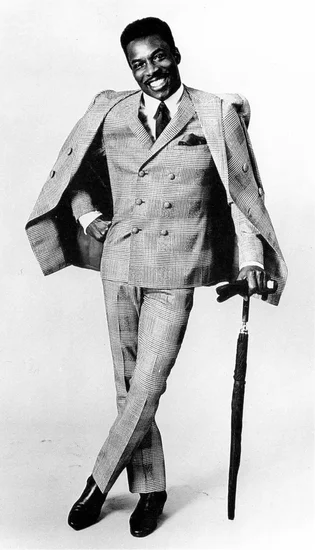
Wilson Pickett was born in Prattville, Alabama, beginning a journey that would make him a soul music legend. His powerful voice and dynamic stage presence would revolutionize rhythm and blues performance.
Pickett’s musical career would produce numerous hit records and establish him as one of soul music’s most influential performers. His energetic style influenced countless musicians and helped define the Motown sound.
1950 – Brad Dourif Born

Brad Dourif was born in Huntington, West Virginia, launching an acting career that would span film, television, and theater. His distinctive voice and intense performances would make him a sought-after character actor.
Dourif would become famous for his portrayal of disturbed characters in horror films and psychological thrillers. His Oscar-nominated performance in “One Flew Over the Cuckoo’s Nest” established his reputation as a serious dramatic actor.
1959 – Luc Besson Born

French filmmaker Luc Besson was born in Paris, beginning a career that would revolutionize action cinema. His innovative visual style and storytelling approach would influence filmmakers worldwide.
Besson would create iconic films like “The Fifth Element” and “Leon: The Professional” that redefined science fiction and action genres. His production company EuropaCorp became a major force in international film distribution.
1962 – James McMurtry Born

James McMurtry was born in Fort Worth, Texas, inheriting his father’s literary talents while developing his own musical voice. His upbringing in a literary household exposed him to storytelling traditions from an early age.
McMurtry would combine his narrative skills with folk and country music to create critically acclaimed albums. His songwriting earned him recognition as one of America’s most insightful contemporary folk musicians.
1964 – Bonnie Blair Born

Bonnie Blair was born in Cornwall, New York, beginning a journey toward Olympic speed skating greatness. Her natural athletic ability and competitive drive would make her an American sports icon.
Blair would become the most successful American Winter Olympic athlete of her era, winning multiple gold medals. Her achievements inspired a generation of young athletes and elevated women’s sports visibility.
1970 – Queen Latifah Born

Queen Latifah was born in Newark, New Jersey, destined to become a pioneering force in hip-hop music and entertainment. Her early exposure to diverse musical styles shaped her innovative approach to rap performance.
Latifah would break gender barriers in hip-hop while building a successful career in film and television. Her multifaceted talents established her as one of entertainment’s most versatile and influential performers.
Notable Deaths on March 18
1907 – Marcellin Berthelot Dies

Marcellin Berthelot, the renowned French chemist and politician, died after a distinguished career in science and government service. His groundbreaking research in organic chemistry fundamentally advanced scientific understanding of molecular processes.
Berthelot’s dual career in science and politics demonstrated the important connections between scientific advancement and public policy. His work laid crucial foundations for modern pharmaceutical and chemical industries.
1936 – Eleftherios Venizelos Dies
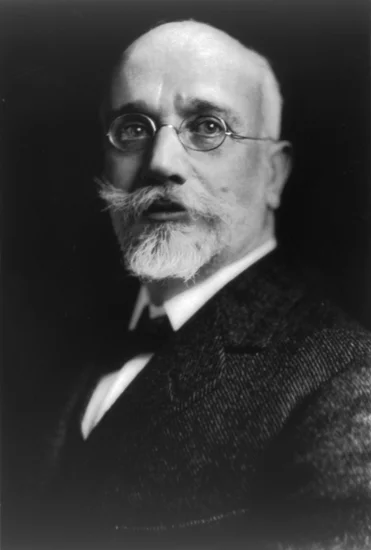
Eleftherios Venizelos, Greece’s transformative Prime Minister, died after leading his nation through crucial periods of modernization and territorial expansion. His political vision shaped modern Greece’s democratic institutions and international relationships.
Venizelos’s leadership during the Balkan Wars and World War I established Greece as a significant regional power. His liberal reforms modernized Greek society and strengthened democratic governance throughout the nation.
1965 – Farouk of Egypt Dies

King Farouk of Egypt died in exile after losing his throne to military revolutionaries led by Gamal Abdel Nasser. His reign witnessed growing nationalist tensions and demands for independence from British influence.
Farouk’s downfall marked the end of monarchy in Egypt and the beginning of republican government. His exile symbolized the broader transformation of Arab politics from traditional monarchy to revolutionary nationalism.
1978 – Leigh Brackett Dies

Leigh Brackett, the influential science fiction author and screenwriter, died after a career that helped define the space opera genre. Her innovative storytelling combined hard science fiction with romantic adventure elements.
Brackett’s work on “The Empire Strikes Back” screenplay demonstrated her lasting influence on popular culture and cinema. Her contributions to science fiction literature inspired countless writers and filmmakers.
1983 – Umberto II of Italy Dies
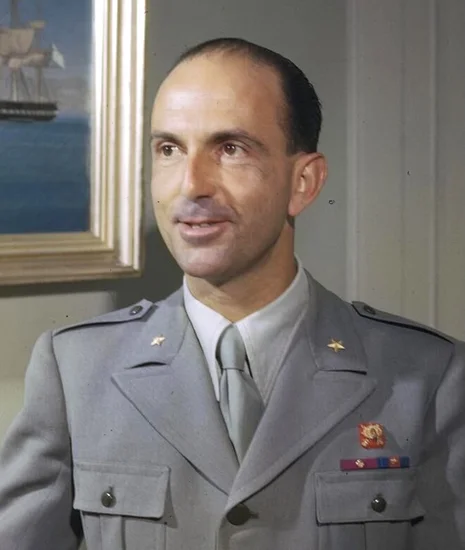
Umberto II, Italy’s last king, died in exile after losing his throne in a post-war referendum. His brief reign ended centuries of monarchical rule and established Italy as a modern republic.
Umberto’s departure marked Italy’s definitive break with its royal past and embracing of democratic governance. His exile represented the broader European transition from monarchy to republican government after World War II.
2001 – John Phillips Dies
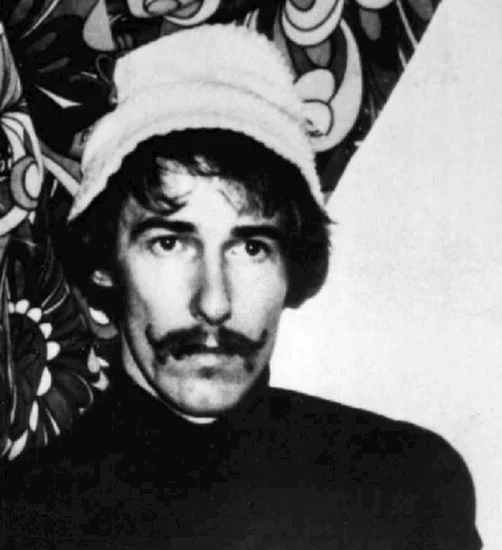
John Phillips, founder of The Mamas & The Papas, died after helping define the sound of 1960s folk rock. His songwriting and musical arrangements created some of the era’s most memorable and influential songs.
Phillips’s musical legacy included classics like “California Dreamin'” that captured the spirit of the counterculture movement. His work influenced countless musicians and helped establish the California sound in popular music.
2008 – Anthony Minghella Dies

Anthony Minghella, the acclaimed British film director, died after creating some of cinema’s most memorable romantic dramas. His sensitive direction and literary adaptations earned him critical acclaim and popular success.
Minghella’s Academy Award-winning direction of “The English Patient” demonstrated his mastery of complex narrative structures and emotional storytelling. His work elevated the art of literary adaptation in contemporary cinema.
2011 – Warren Christopher Dies
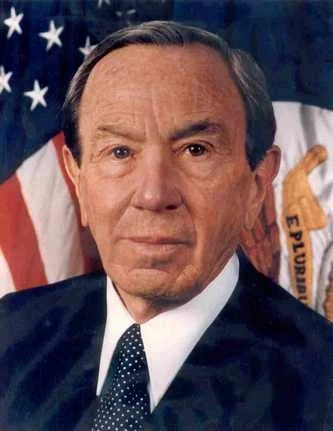
Warren Christopher, former U.S. Secretary of State, died after a distinguished career in diplomacy and public service. His quiet diplomacy and negotiation skills helped resolve numerous international crises and conflicts.
Christopher’s leadership during the Clinton administration strengthened American diplomatic relationships and promoted democratic values worldwide. His legacy included successful peace negotiations and international cooperation initiatives.
Holidays and Observances on March 18
Anniversary of the Oil Expropriation – Mexico
Mexico commemorates the historic nationalization of its petroleum industry on this date in 1938. The holiday celebrates national sovereignty over natural resources and economic independence from foreign control.
President Lázaro Cárdenas’s bold decision to expropriate foreign oil companies transformed Mexico’s economy and inspired resource nationalism across Latin America. The anniversary remains a symbol of Mexican national pride and economic self-determination.
Gallipoli Memorial Day – Turkey
Turkey observes Gallipoli Memorial Day to honor the naval victory that prevented Allied forces from capturing the strategic Dardanelles strait. The commemoration celebrates Turkish military resistance and national determination during World War I.
The Gallipoli campaign’s failure marked a turning point in Turkish national consciousness and military confidence. The memorial day honors the sacrifices made in defending Turkish territory against overwhelming odds.
Men’s and Soldiers’ Day – Mongolia

Mongolia celebrates Men’s and Soldiers’ Day to honor military service and masculine contributions to national defense. The holiday recognizes the important role of armed forces in protecting Mongolian independence and sovereignty.
The observance reflects Mongolia’s proud military traditions and the ongoing importance of defense readiness in a strategically important region. The day celebrates both historical military achievements and contemporary service members.
Sheelah’s Day – Ireland, Canada, Australia

Irish communities worldwide celebrate Sheelah’s Day as a traditional folk holiday honoring Irish cultural heritage. The observance includes traditional music, dancing, and storytelling that preserve Irish customs and traditions.
The holiday complements St. Patrick’s Day celebrations and provides an additional opportunity to celebrate Irish identity and cultural pride. Irish diaspora communities use the day to strengthen cultural connections and pass traditions to younger generations.
